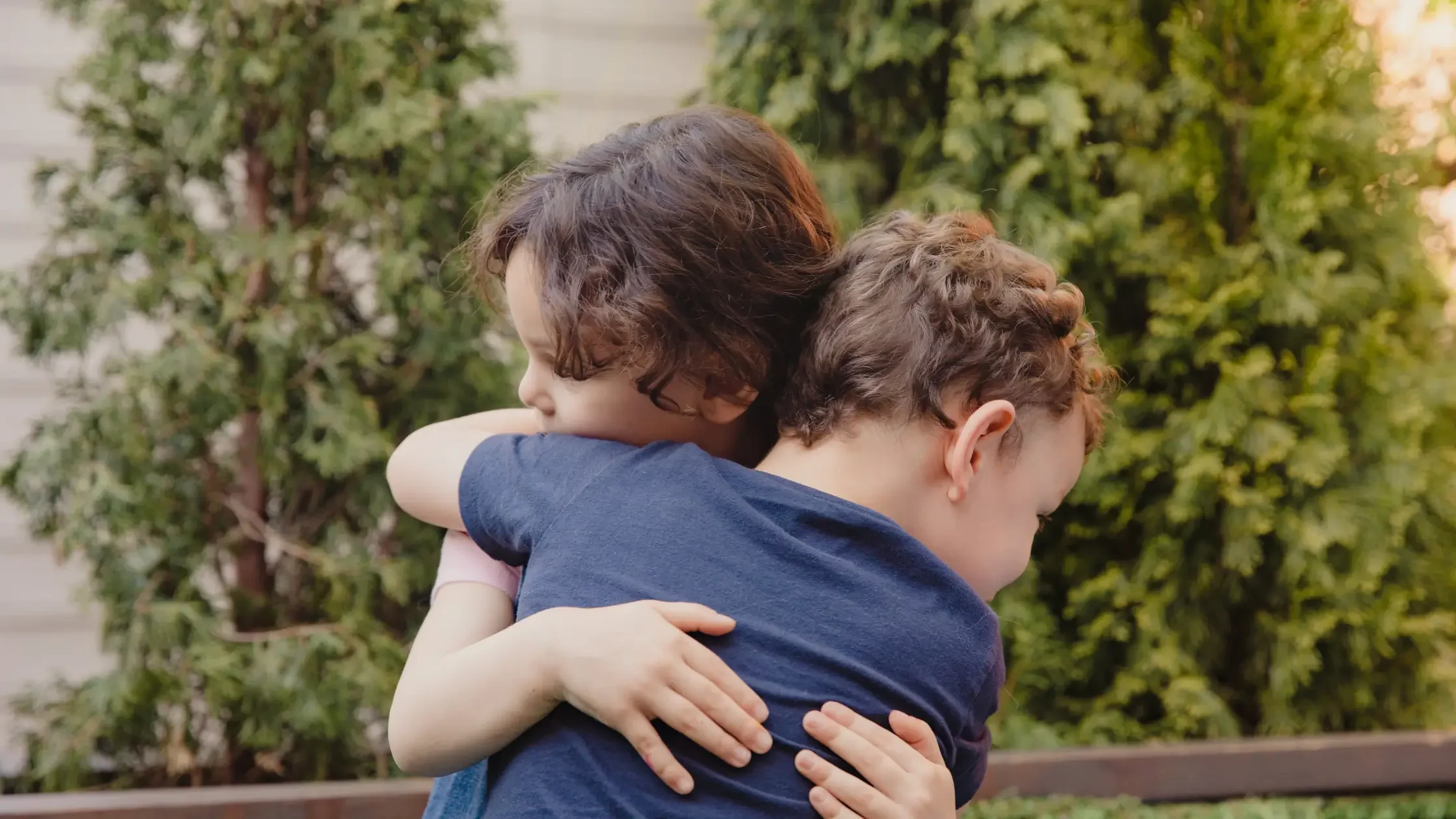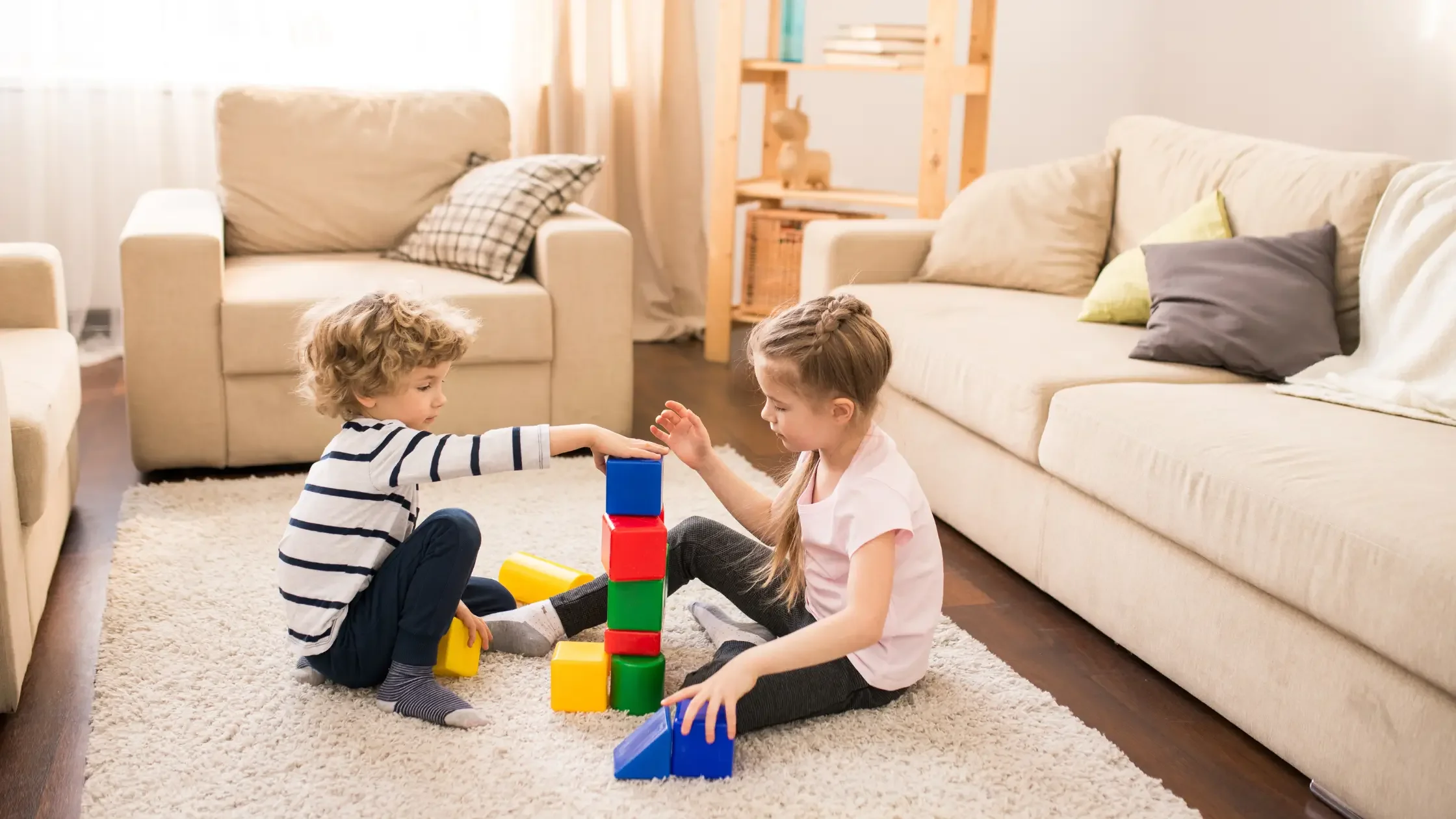Sibling Relationship for Sensitive Children: Building Connection Without Competition
Sibling relationships are one of the most formative experiences of childhood and are essential for socioemotional growth, according to research. A sibling is so many things in one: a friend, a companion, a partner in mischief, and a playmate. Like all other relationships, this one involves big emotions too, and for sensitive children, a sibling relationship can feel more like an emotional minefield. Even simple interactions can become overwhelming, and although sibling rivalry is normal, sensitive children might struggle more with emotional regulation. This article explores ways to foster a healthy sibling relationship between sensitive children, using strategies rooted in empathy. Learn to foster connection, not competition!!
Why a Sibling Relationship Feels More Intense For Sensitive Children
For sensitive children, sharing a physical space with a sibling can be a little too much, and it does not mean that they don’t love each other!! Kids who are highly aware of their surroundings and feel things deeply often need more downtime to rewind. Solitude and predictability are two essential components of their routines, and when that gets disturbed, they might feel overwhelmed. Misplaced toys, the shared bedroom, and different routines between siblings can all be major factors. Learn more about parenting sensitive children here.
Siblings fight and quarrel, and that’s totally normal. But for sensitive children, even a small conflict can feel catastrophic. A minor disagreement between siblings may trigger a reaction that is out of proportion to the dispute at hand. And this may lead to an emotional outburst or recurring tension in a sibling relationship.
Sensitive children may feel inadequate when they see that their sibling is good at a certain thing, more outgoing, or simply praised more. And this is not only hurtful for the kid but also harms the sibling relationship in the long run. Subtle comparisons can also fuel jealousy or rivalry, even without us intending to do that. Thus, supporting them in a way that makes them feel valued makes all the difference!
Sibling Relationship: Rivalry or Overwhelm?
To support your sensitive children through a sibling conflict, it is first important to recognize the signs. Is it just a normal rivalry or serious emotional overwhelm?
For a typical sibling squabble, you can watch out for how long it lasts. These are usually short bursts of arguing or tattling, moments of competitiveness that blow over quickly. Most importantly, both children recover from these moments without any help. The undertone to such arguments is playful or witty, and the mood shifts quickly.
But on the other hand, if a conflict goes on for longer and you see its effect linger in everyday life, then this could be different. If a sensitive child is emotionally overwhelmed, they might cry inconsolably, freeze, or lash out in response to banter without being able to explain why. If the kids end up fighting physically, you can use these steps to consciously discipline them.
After a fight, they may still find themselves in a state of conflict even when it’s over and may not seem to relax despite assurances. You can also watch their body language for cues. Covering their ears, hiding out, and going quiet are all signs that may go unnoticed. All these signs mean that they aren’t just upset because of a fight; it means that their emotional system is dysregulated, and spotting it in time can help both the child and their sibling relationship.
Building Emotional Bridges in a Sibling Relationship
To help strengthen the sibling relationship, you need to foster moments of empathy, presence, and modeling. Here are five ways you can do that:
Naming Emotions
After a conflict, it is important to recognize what each child must be feeling. Saying ‘It seems like you’re both feeling upset’ can even help raise awareness amongst the children as to what’s really happening. This reduces confusion and promotes understanding.
Model Calmness
When things get heated, it is important that you stay firm on your ground and portray a calm demeanor. When they see an adult around them with a regulated nervous system, they learn and try to sync their behavior accordingly. \
Avoid Blame
In a sibling relationship, it is important to keep the blame out of the equation. Invite your children to be curious instead of blaming each other using phrases like ‘How did you feel?’ or ‘Why do you think your sister felt a certain way?’ This promotes understanding.
Gentle Physical Cues
A light pat on the shoulder or just calmly sitting between the siblings can bridge the gap that the kids might feel after an argument. A hug works too if they’re comfortable! But nonetheless, it all helps them calm down.
Reflect and Repair
Once everything looks settled, get to checking in with both the kids. It’s best to do this activity together so that everyone learns together. Roll out open-ended questions like ‘What can we do differently next time? Or ‘How can we be kind to each other?’
Antidote to Jealousy in a Sibling Relationship: One-on-One Time
Younger children thrive on encouragement from their care-providers, and when that dims, children may feel lost. This mostly happens when parents are unable to provide dedicated time to their children. When there is a lot of time overlap, kids may start feeling like they are competing with their siblings for attention. This takes away their energy and harms the sibling relationship, too.
The good news is that there’s an easy fix to this problem!! Dedicated one-on-one time with each child separately. By doing this, you’re telling your kids that they are valued for who they are, not just in relation to their siblings. And even though taking out time separately may be a bit difficult, setting aside 10-15 minutes every weekend where each child chooses an activity to do with you is a great start. Besides this, involve your kids in routine activities. This could be grocery shopping or cleaning, whatever it is that they like. This way, their jealousy softens and their confidence grows. They will feel safe, and this will make them much more likely to seek connection with everyone around them.
5 Simple Activities That Foster A Sibling Relationship
Art Projects
Kids love crafty projects! It’s even more fun when they get to do it together. Set up a shared canvas or a collage where siblings work on one piece together. They may disagree, but they will eventually learn to find a way through these problems.
Bedtime Story
Read a story to both children together. Let them each choose a story of their liking alternatively, and encourage them to cuddle up and get cosy.
‘Thank You’ circles
Keep a weekly meeting with your children where they share one thing that they appreciate about the other. This ritual will nurture gratitude and empathy. Keep a cookie or a sweet treat to make this circle more exciting!!
Praise Jars
Get a jar for each kid and label it with their names. Everyone in the family can then drop notes of appreciation or encouragement for them that they can read out loud together. This just makes them feel valued.
Team Tasks
Take everyday routine work and turn it into a sibling team task, such as tidying up the playroom or setting the table together. It builds confidence in working together amongst the siblings rather than in competition.
Shifting the Language for a Stronger Sibling Relationship
The words we use as parents have a huge impact on our kids. They see themselves through our eyes and words, and then go on to use the same language with each other. So, it’s very important that our vocabulary with our kids is kind and gentle.
Instead of comparing kids with each other, use compassionate scripts that make them feel understood. And when tensions rise, bring them back to safety with prompts that validate their feelings and help them reconnect with each other. Here are a few phrases that can help you achieve that:
‘You both are special, and you both bring something unique to our family’
‘Looks like you’re both struggling with something. Let’s slow down and talk it through.
‘You both can do things differently. We all learn in our own different ways.
‘I understand that you’re upset. Let’s check in on how your sibling is feeling, too.
‘What can we do differently next time so that no one gets hurt?’
Turning Fights into Opportunities For Growth
Fights are tough to navigate through, but they’re not all bad!! Conflict teaches kids resilience and respect. It teaches them that a sibling relationship can have rough patches, but they’re strong enough to withstand them. So if you find yourself in the middle of a fight, turn it into an opportunity for growth.
Help your children communicate freely after a fight. Teach them to express how they feel and ensure that they listen to each other. Brainstorm solutions for ‘what if there’s a next time’ and over time, they will start viewing disagreements as a step towards building stronger bonds. If the fights sometimes get physically aggressive, here’s how you can navigate the situation and discipline the kiddos!
The Lasting Power of a Sibling Relationship
Sibling relationships can be challenging and rewarding at the same time, especially for sensitive children. With empathetic support and guidance rooted in gentleness, you can strengthen this bond all while making sure that your kid is valued and loved for who they are. But if you find yourself at a crossroads, don’t hesitate to seek help! With our Tuned In parenting course, you can find the right support for nurturing your sensitive children and building relationship foundations for them that they are likely to carry beyond childhood.
Do you have a highly sensitive child?
We have created a course (Tuned In Parenting Course) that covers all from parenting techniques, to self-regulation, setting expectations, healthy boundaries and so much more. If you feel like starting with a sneak peak visit our Instagram page or check our mini courses: The Highly Sensitive Child and Parenting Essentials. We created these resources with care, and our hope is that they bring you clarity, support, and a sense of ease in your parenting journey.


